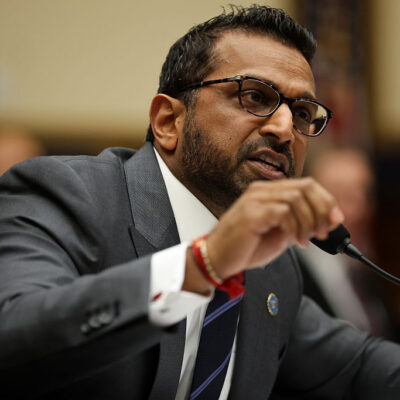Opinion
Labor Day reminder: Policies aren’t enough when it comes to paid leave
In Short
As we celebrate American workers, a new study sheds light on the reality that having the right policies doesn't guarantee employees can actually use them.
As we approach Labor Day, a holiday dedicated to celebrating the achievements of American workers, a new study by the Women’s Rabbinic Network reveals a troubling truth: Changing policy is hard, but changing culture is much, much harder.
The study, which focuses on paid leave experiences among Reform movement professionals, presents a striking paradox. While nearly all respondents believe paid leave should be standard — 98% for parental leave, 97% for medical leave and 89% for caregiving leave — significant barriers persist that prevent many from accessing these benefits when needed. Despite formal policies existing in 75% of organizations represented in the study, confidence in being able to use leave varies dramatically, with only 65% feeling certain they could take caregiving leave if necessary.

Dusan Petkovic/Adobe Stock
Illustrative.
This disconnect between policy and practice reveals a fundamental truth about workplace culture in Jewish organizations: We’ve made progress on paper, but our lived experiences tell a different story. It would be a mistake to disregard the progress that organizations like WRN helped to bring about, and it would be just as big a mistake to ignore the work that remains.
The study, conducted by the Center for Parental Leave Leadership and made possible by a grant from SRE Network, surveyed 310 Reform movement professionals and uncovered troubling patterns. Despite having leave policies, employees described being “pestered frequently” during their time off and “required” to take meetings during recovery, as well as participating in Zoom calls while supposedly on leave for healing or family bonding. Too often the burden of enforcing leave policies falls inappropriately on employees rather than organizations creating cultures that protect their time off.
Perhaps most concerning is the professional vulnerability that leave can create. The study documents cases where employees returned to find their positions eliminated or restructured, with organizations having discovered during their absence that portions of their work could be handled by lower-paid staff. Rather than serving as a protected right, leave paradoxically became a trigger for job insecurity.
A Biblical foundation for modern leave policies
The need for community-supported leave isn’t without precedent in Jewish tradition. In this week’s Torah portion Shof’tim, Moses shares laws that recognize human needs even during times of communal urgency. When preparing for war, exemptions are granted to those who have built a new home but not yet dedicated it, planted a vineyard but not yet harvested it, or become engaged but not yet married. Our tradition recognizes the human need to be present during significant life transitions, even at the expense of immediate communal contributions.
The same principle applies to modern Jewish workplaces: We must recognize and financially support employees’ needs to tend to their personal lives during pivotal moments.
The calendar challenge and Jewish professional life
The Jewish calendar, and the High Holidays in particular, create impossible timing pressures, with respondents describing how they strategically scheduled major life events to avoid conflicts, returned to work early from medical recovery, and lived with anxiety about how congregational members would receive their absence.
The “impossibility to get High Holiday coverage” reported in smaller congregations creates a cycle where dedicated professionals sacrifice their own well-being rather than disappoint their communities. One respondent even noted taking “less [medical leave] time than I likely would have after surgery” to minimize impact on colleagues and the Jewish calendar.
Gender disparities persist

The data revealed significant gender disparities in leave experiences. Male-identifying participants reported higher overall satisfaction across multiple dimensions, including leave length, benefits communication, organizational support and perceptions of policy fairness. Female-identifying members were more likely to exhaust accrued personal time for income replacement and faced disproportionate barriers in accessing leave.
The study’s findings present both encouraging progress and clear areas for improvement. While an overwhelming majority recognize paid leave as essential, the lived experiences reveal persistent gaps. Almost three-quarters of respondents accessed the full leave they wanted, but women face disproportionate barriers. More women than men had to exhaust personal time off to create the leave they needed, essentially using vacation days and sick time to patch together family care time.
From policy to practice: A call for intentional change
The study’s findings point to a clear five-step action agenda for employers:
1.) Audit and strengthen leave policies to ensure they’re legally protected and universally accessible;
2.) Improve communication so all staff understand their options;
3.) Foster a supportive culture through comprehensive training that emphasizes boundary-setting and encourages complete disengagement during leave;
4.) Implement creative coverage solutions that reduce burdens on both those taking leave and their colleagues; and
5.) Approach Jewish calendar considerations with flexible solutions that acknowledge unique seasonal pressures.
The Reform movement has always prided itself on ensuring our Jewish values are fully aligned with what our congregations and institutions do on the ground. Our approach to paid leave must reflect those same commitments — creating not just policies that look robust on paper, but workplace cultures that genuinely support our professionals’ full humanity. Further, paid leave with robust policies and supportive culture can have important benefits like employee retention and satisfaction and help boost the advancement of women and other marginalized people in leadership roles and narrow the gender wage gap.
As this Labor Day reminds us to honor the dignity of work and workers, this study makes clear that formal policies are just the beginning. The real work lies in ensuring that when our colleagues need time to heal, bond with new children, or care for aging parents, they can do so without fear, guilt, or professional vulnerability. Only then will our policies match our values and truly serve the workers we celebrate this holiday weekend.
Rabbi Mary Zamore is the executive director of the Women’s Rabbinic Network, the organization of Reform female, nonbinary and genderfluid rabbis supporting and advocating for our members and the values we uphold to positively impact our community and for the betterment of all.

 Add EJP on Google
Add EJP on Google









